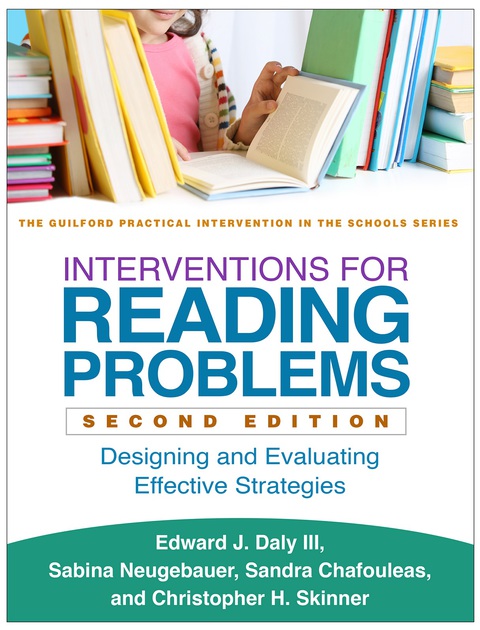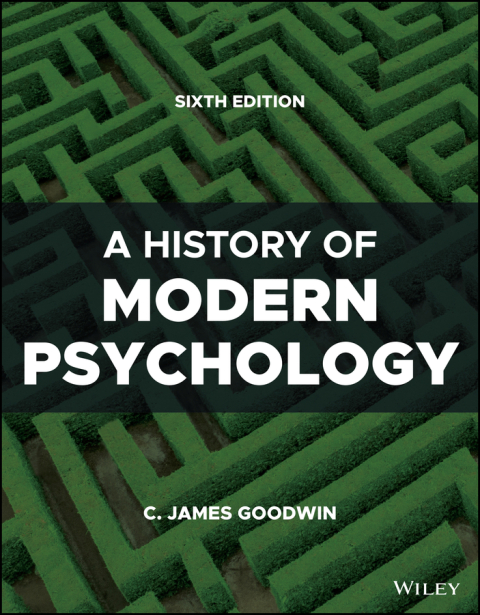Description
Efnisyfirlit
- Cover
- The Guilford Practical Intervention in the Schools Series
- Title Page
- Copyright Page
- Dedication Page
- About the Authors
- Contents
- 1. Introduction and Overview
- Characteristics of the Approach Taken in This Book
- A Brief Overview of the Second Edition
- 2. Where Do You Start as a Consultant?
- Reading Targets across the Continuum of Reading Proficiency
- Qualities and Characteristics of Effective Reading Instruction
- The Instructional Hierarchy
- Prerequisite Skills
- Teaching Materials and Difficulty Levels
- Other Qualities of Teaching Materials
- Summarizing with an Example
- Sufficient Time for Learning and Meaningful Active Engagement
- Responsive Instruction
- Identifying the Entry Point for Intervention Efforts
- Too Much Effort for Too Little Yield
- Unsound Instructional Environment
- Conflicting Organizational Priorities
- Unwillingness to Cooperate
- The Right Questions Are Not Being Asked
- Internet Resources
- Aimsweb
- Dynamic Indicators of Basic Early Literacy Skills (DIBELS)
- Headsprout
- Intervention Central
- National Center on Intensive Intervention (NCII)
- National Center on Progress Monitoring
- National Reading Panel
- 3. Multi-Tiered Reading Interventions
- The Origins of Response to Intervention as a Multi-Tiered Intervention Model
- How Multi-Tiered Interventions Are Structured in Response to Intervention
- Evaluating and Selecting a Strong Core Curriculum
- Looking for Research-Based Curricula
- Using Screening Data to Evaluate Your Core Reading Curriculum
- Common Problems with Core Curricula
- Making Adjustments within Tiers
- Conclusions
- 4. Diverse Learners
- Who Are English Learners?
- Evidence-Based Guidelines and Practices for English Learners
- Formative Assessment
- Small-Group Interventions
- Heterogeneous Ability Groupings
- High-Quality Vocabulary Instruction
- Academic Language and the Use of Supplementary Materials
- How to Appropriately Assess English Learners
- Determining Areas for Growth
- Conclusions
- 5. Early Literacy
- What Is Early Literacy?
- Definition
- Phonological Awareness and Phonemic Awareness
- Letter Sounds and the Alphabetic Principle
- Phonics
- Why Is It Difficult for Some Students to Establish Proficient Early Literacy Skills?
- Recommendations for Early Literacy Instruction in a Multi-Tiered Framework
- Key Features of Good Content Instruction (What to Teach) in Early Literacy
- Key Features of Good Delivery of Instruction (How to Teach) in Early Literacy
- Case Example
- Selecting an Intervention Based on Assessment Data
- Instructional Program Examples
- Case Example Revisited
- Conclusions
- APPENDIX 5.1. Additional Early Literacy Intervention Package Resources
- Whole-Class Instruction
- Small-Group Instruction
- Computer Software
- 6. Producing Measurable Increases in Reading Fluency
- Why Is Fluency Important?
- Fluent Readers Are More Likely to Comprehend
- Fluent Readers Are More Likely to Choose to Read
- Fluent Reading Is Less Effortful
- Fluency-Induced Spirals
- Assessing Reading Fluency Using Curriculum-Based Measurement
- Curriculum-Based Measurement Oral Reading Fluency Assessment Materials
- Empirically Validated Reading Interventions
- Repeated Readings
- Phrase Drill Error Correction
- Performance Feedback
- Modeling: Listening While Reading
- Teaching Words in Isolation
- The Context for Reading Intervention: Putting the Components Together
- Prioritizing Intervention Strategies
- When You Can’t Go Lower in the Curricular Basal Series
- Classwide Peer Tutoring
- Conclusions
- 7. Vocabulary
- Why Is It Important to Teach Vocabulary?
- Instructional Strategies for Increasing Vocabulary
- Strategies for All Students as Word Learners
- Strategies for Young Word Learners
- Strategies for Older Word Learners
- Putting It All Together
- Assessing Vocabulary Knowledge
- The What and How of Sensitive Vocabulary Assessments
- What Standardized Norm-Referenced Vocabulary Assessments Can Tell You
- Intensifying Vocabulary Instruction in a Multi-Tiered Framework
- Modeling
- Scaffolding
- Feedback
- Intensifying Vocabulary Instruction for English Learners
- Conclusions
- 8. Reading Comprehension
- What Is Reading Comprehension?
- Reading Activities Appropriate for the Reader
- Prereading or Previewing Comprehension Activities
- Comprehension Activities and Strategies during Reading
- Postreading Comprehension Activities
- Combining Procedures
- Text Choices
- What Texts Should Teachers Choose?
- What Are Appropriate Self-Selected Books?
- Reinforcing Reading Comprehension
- Intervening with Feedback and Reinforcement
- Intensifying and Pacing Instruction
- Assessment
- Oral Retell Measures of Comprehension
- Examiner-Written Comprehension Questions
- Rate of Comprehension
- Cautious Decision Making Based on Comprehension Assessment
- Conclusions
- 9. Accountability: Are You Making a Measurable Difference?
- The Measure of Professional Performance
- The Importance of Accountable Practice
- Overcoming Sources of Professional Error in Practice
- The Need for Local Validation of Outcomes for Professional Services
- It Starts with the Individual
- The Changing Context for Meeting the Needs of Students with Reading Problems
- Rounding Out Your Reading Intervention-Based Services with an Accountability Component
- An Explicit Model of Service Delivery
- An Explicit Model of Accountability
- Data Summarization Methods
- Pulling the Data Together and Reporting Results
- Gauging Your Outcomes: Establishing a Basis for Comparison
- Sharing Your Results with Others
- Wrapping Up
- References
- Index
- About Guilford Press
- Discover Related Guilford Books





